
The Le Bonheur Chair in Pediatric Neurology at the University of Tennessee Health Science Center highlighted the benefits and challenges of using stiripentol, an FDA-approved treatment for Dravet syndrome. [WATCH TIME: 4 minutes]

The Le Bonheur Chair in Pediatric Neurology at the University of Tennessee Health Science Center highlighted the benefits and challenges of using stiripentol, an FDA-approved treatment for Dravet syndrome. [WATCH TIME: 4 minutes]
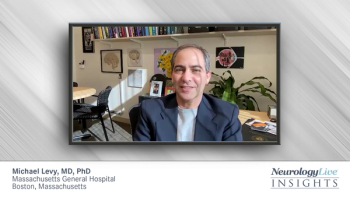
A panelist discusses how neurologists can adapt their NMOSD management strategies based on recent findings about relapse and hospitalization rates, sharing practical advice and clinical experience for optimizing patient outcomes.
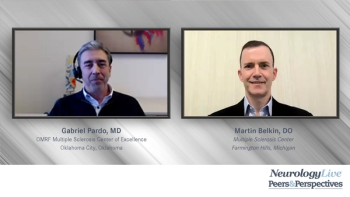
Panelists discuss how recent investigations into progression independent of relapse activity (PIRA) in multiple sclerosis (MS) have revealed complex inflammatory signatures in cerebrospinal fluid and peripheral blood, with biomarkers like neurofilament light chain and pro-inflammatory cytokines showing promise in tracking neurodegeneration. The Swedish MS Registry’s findings suggest that early implementation of high-efficacy disease-modifying therapies may effectively delay or prevent PIRA progression, though these results require further robust, multicenter validation to definitively establish clinical significance and generalizability.
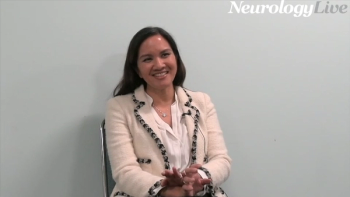
The epileptologist at UCLA Health provided perspective on a poster presented at AES 2024 that characterized a specific subgroup of patients with developmental epileptic encephalopathy and their response to certain therapies. [WATCH TIME: 3 minutes]
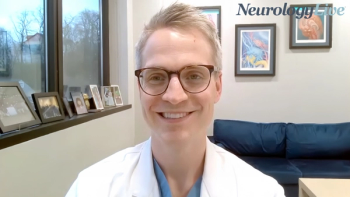
The director of epilepsy surgery at Allegheny Health Network talked about research recently presented at AES 2024 on stereo-electroencephalography, a minimally invasive treatment for patients with epilepsy. [WATCH TIME: 7 minutes]
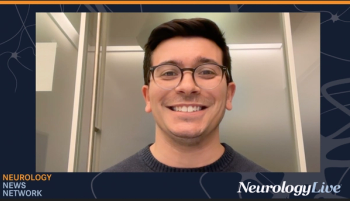
Neurology News Network. for the week ending December 7, 2024. [WATCH TIME: 4 minutes]
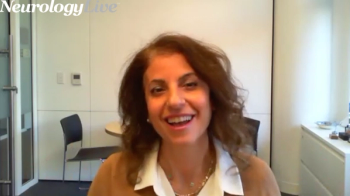
The epilepsy specialist and Cleveland Clinic’s Chief Research and Information Officer detailed the steps and teamwork required to implement a machine learning that predicts seizure outcomes in epilepsy surgery. [WATCH TIME: 4 minutes]

Panelists discuss how progression independent of relapse activity (PIRA) in multiple sclerosis (MS) represents continuous neurological decline unrelated to inflammatory events, distinct from relapse-associated worsening (RAW). Recent ECTRIMS 2024 presentations emphasized standardized evaluation methods to better understand disease progression and improve patient management strategies.

Panelists discuss how modern multiple sclerosis (MS) management has evolved from symptomatic treatment to a proactive, personalized approach leveraging advanced biomarkers and sophisticated disease-modifying therapies. The focus has shifted toward early intervention, precise monitoring, and comprehensive disease control, significantly improving patient outcomes and quality of life.
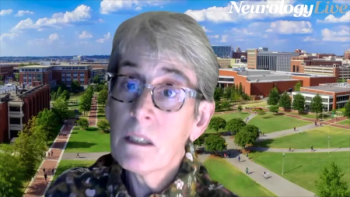
The professor of neurology at the University of Alabama at Birmingham Epilepsy Center provided comment on raising awareness for infantile spasms, especially during Infantile Spams Awareness Week, which is celebrated the first week of December. [WATCH TIME: 3 minutes]

The vice chair of the American Academy of Sleep Medicine’s Clinical Practice Guidelines Task Force commented on some of the unanswered questions following the recently published guidelines for restless legs syndrome. [WATCH TIME: 3 minutes]
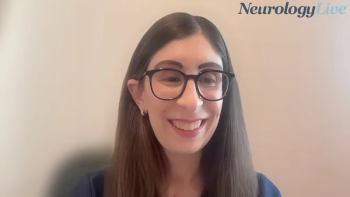
The assistant professor of neurology at the Icahn School of Medicine at Mount Sinai provided an overview of a session on exercise and migraine presented at the 2024 Scottsdale Headache Symposium. [WATCH TIME: 5 minutes]

A panelist discusses how comparing hospitalization rates, relapse risks, and safety considerations between rituximab and other NMOSD therapies, such as complement inhibitors, can provide valuable insights to guide treatment decisions, manage healthcare costs, and optimize patient quality of life.
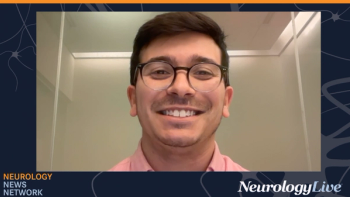
Neurology News Network. for the week ending November 30, 2024. [WATCH TIME: 4 minutes]
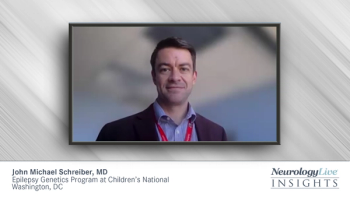
John Michael Schreiber, MD, describes how he counsels and educates caregivers about the potential benefits and limitations of genetic testing, detailing his approach to educating them before testing, how he guides them in interpreting results and transitioning to clinical management afterward, and the role of genetic counseling, including when to refer to a genetic specialist; he also provides key takeaways on the role and value of genetic testing for pediatric epilepsy and discusses how providers should utilize next-generation sequencing (NGS) moving forward.
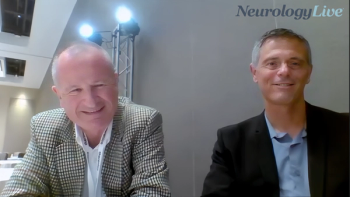
The pediatric neurologist at Duke Health and chief executive officer at Theranica talked about a remote electrical neuromodulation wearable that showed promising results for the treatment and prevention of migraine in pediatric patients. [WATCH TIME: 5 minutes]
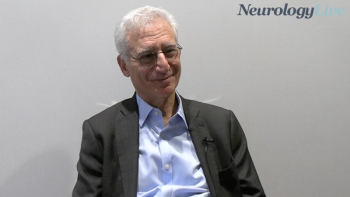
The cofounder and chief science officer of the Alzheimer's Drug Discovery Foundation highlighted the critical role of collaboration and innovative diagnostics for advancing Alzheimer disease care. [WATCH TIME: 4 minutes]
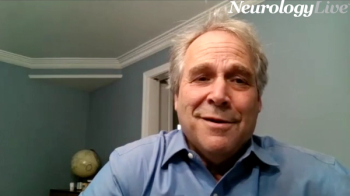
The professor of neurology at the University of Pennsylvania Perelman School of Medicine provided clinical insight on a long-term safety analysis of omaveloxolone, the first FDA-approved treatment for Friedreich ataxia. [WATCH TIME: 4 minutes]

A panelist discusses how when treating NMOSD, neurologists should consider the patient's clinical characteristics, safety profiles, administration requirements, and cost-effectiveness when selecting between FDA-approved therapies such as eculizumab, inebilizumab, satralizumab, ravulizumab, and rituximab. Shared decision-making is crucial, involving close collaboration between the healthcare team and the patient to develop a personalized treatment plan that considers the patient's overall well-being.

The vice chair of the American Academy of Sleep Medicine’s Clinical Practice Guidelines Task Force provided in-depth insight on the most noted changes to the 2024 RLS guidelines clinicians should be aware of. [WATCH TIME: 9 minutes]
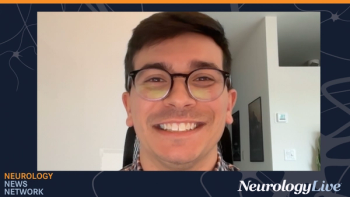
Neurology News Network. for the week ending November 23, 2024. [WATCH TIME: 4 minutes]
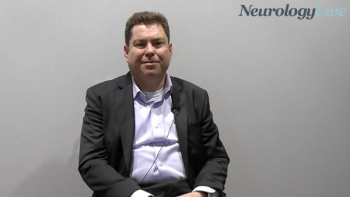
The professor of neurology and radiology at University of California, San Francisco, discussed the potential of blood-based biomarkers in Alzheimer treatment eligibility, highlighting current limitations and the importance of safety monitoring. [WATCH TIME: 7 minutes]
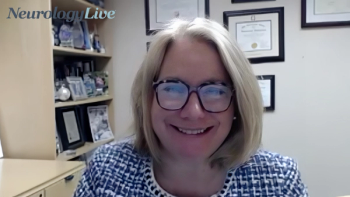
The neurologist in the Headache Center at Cleveland Clinic shared her post perspective on the 2024 AHS Scottsdale meeting which highlighted advancements in headache medicine and the growing impact of the field on patient care. [WATCH TIME: 5 minutes]

John Michael Schreiber, MD, describes the benefits of genetic testing for pediatric epilepsy diagnoses, noting the challenges associated with interpreting test results, and highlights key differences between genetic tests and their implications for clinical decisions, discussing how a genetic diagnosis can inform and guide epilepsy treatment.

The epilepsy specialist and Cleveland Clinic’s Chief Research and Information Officer discussed the wide-spread applicability of scalp EEG and the potential for machine learning models to help predict epilepsy surgery outcomes. [WATCH TIME: 4 minutes]

The dean and chief academic officer at the University of Miami Miller School of Medicine discussed the university’s investment in computational biology to advance aging and neuroscience research. [WATCH TIME: 5 minutes]
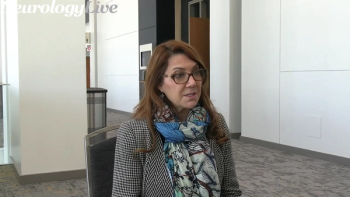
The professor in residence at UCLA Health discussed the critical considerations when deciding appropriate patients for gene therapies, specifically AAV vectors, in treating muscular dystrophies. [WATCH TIME: 4 minutes]

Michael Levy, MD, PhD, discusses how Aquaporin-4 IgG-seropositive neuromyelitis optica spectrum disorder (AQP4-IgG+ NMOSD) is a rare autoimmune condition affecting the central nervous system. Anti-CD20 therapies, particularly rituximab, have led to increased relapse rates.

The professor in residence at UCLA Health provided clinical insight on the limitations of certain gene therapy vehicles for muscular dystrophies, and the need for better vectors that are more myotropic. [WATCH TIME: 3 minutes]
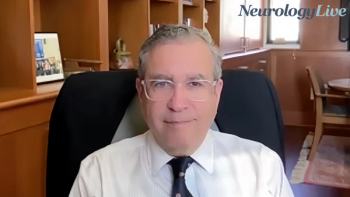
The William S. and Lois Stiles Edgerly Professor of Neurology at Yale School of Medicine talked about the ongoing evolution of multiple sclerosis diagnostic criteria and the importance of comprehensive testing to guide early intervention and improve outcomes. [WATCH TIME: 5 minutes]